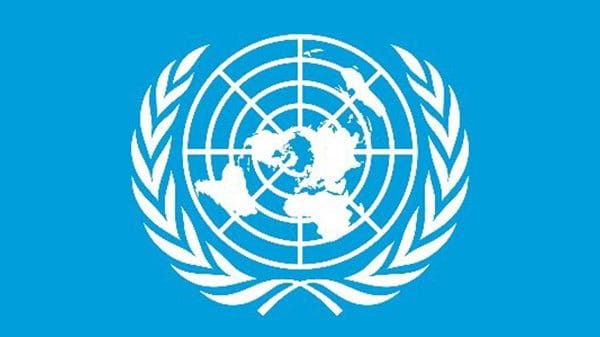Thank you dear subscribers, we are overwhelmed with your response.
Your Turn is a unique section from ThePrint featuring points of view from its subscribers. If you are a subscriber, have a point of view, please send it to us. If not, do subscribe here: https://theprint.in/subscribe/
The UNIFIL was established to patrol the Lebanon’s southern frontier after Israel’s 1978 invasion. The UN Security Council has periodically renewed and expanded its mandate repeatedly, and especially during Israel’s 18-year occupation of southern Lebanon between 1982 and 2000. UNIFIL’s role was further revised at the end of the 2006 war with Hezbollah.
In order to keep the peace in areas between Lebanon and Israel UNIFIL monitors any movements of Israeli or Lebanese forces across the “blue line”, a 120 km UN mapped line that became a de facto border. UNIFIL is also tasked with assisting the Lebanese national army keep the area free of terrorists and non-state actors. This has not worked because Hezbollah, Lebanon’s most powerful political and military force with more power than the Lebanese army, effectively controls the south of the country.
Recently, UNIFIL positions have come under several deliberate attacks and violations by the Israel Defense Forces (IDF). As per the statement of spokesperson for UNIFIL to Al-Jazeera, “the latest Israeli attack was a very serious and concerning development”. UNIFIL has stressed that targeting peacekeepers was a very serious violation, not only of Resolution 1701 but also of International Humanitarian Law. UN Resolution 1701 was intended to resolve the 2006 Lebanon War. The resolution called for a full cessation of hostilities between Israel and Hezbollah, the withdrawal of Israeli forces from Lebanon, and the disarmament of armed groups including Hezbollah, with no armed forces other than UNIFIL and Lebanese military south of the Litani River.
In a joint statement on October 12, 2024, 34 countries contributing troops to the UNIFIL have condemned ongoing attacks on peacekeepers. A day after it expressed concern over the deteriorating security situation along the Israel-Lebanon border, India on October 12, 2024, joined the troop-contributing countries in the UNIFIL and aligned itself against the Israeli military’s action.
Israel has repeatedly called for withdrawal of UNIFIL, since the peacekeepers have failed to check the spread of Hezbollah influence in southern Lebanon. The Israeli prime minister, Benjamin Netanyahu accuses the peacekeepers of “providing a human shield” to Hezbollah.
In view of the recent developments, the very tenacity of UNIFIL comes under shadow of skepticism, especially in the context of not only the grave risks to the peacekeepers but also with regard to its mandate. As per the UN policy, there are three basic principles that continue to set UN peacekeeping operations (UNPKO) apart as a tool for maintaining international peace and security. These three principles are interrelated and mutually reinforcing. The principles being – consent of the parties, impartiality and non-use of force except in self-defence and in defence of the mandate (https://peacekeeping.un.org/en/principles-of-peacekeeping).
As per the UNPKO policy, consent of the parties implies that the UN peacekeeping operations are deployed with the consent of the main parties to the conflict. Their acceptance of a peacekeeping operation provides the UN with the necessary freedom of action, both political and physical, to carry out its mandated tasks. The parties to conflict here happen to be Israel, Lebanon and Hezbollah. Given the current developments, an aspiration of consent on part of the stakeholders towards continuation of deployment of UNIFIL, is indeed ambitious.
The principle of impartiality is analogous to the role of a good referee who is impartial, but penalises violations of agreements. Since, there is no modicum of any agreement existing in the current situation, continuation of the mission does seem in jeopardy since UNIFIL has ceased to command authority.
Lastly, the principle of non-use of force except in self-defence and defence of the mandate embodies that UNPKO are not an enforcement tool. However, they may use force at the tactical level, with the authorisation of the Security Council, if acting in self-defence and defence of the mandate. The canvas of use of force by the peacekeepers is quite restricted in the context of developments in the region. The basic hindrance to use of force is the limited capabilities of peacekeeping troops that are simply not geared up and prepared for the same.
In a nutshell, the impunity with which the belligerents on the Israel-Lebanon border are operating as also the belittling that UN has undergone vis-a-vis the attitudes of the main players, especially Israel, the prospects of UNIFIL do not appear to be promising. Withdrawal of UNIFIL, as demanded by Israel shall send across a dismal message, when viewed through a prism of peace prospects. This impasse could be broken if the member nations stand in unison, in letter and spirit to uphold the spirit of the UN. However, that train seems to have left the station.
These pieces are being published as they have been received – they have not been edited/fact-checked by ThePrint


